1300 312 712
Have Any Questions?
L2, 11-15 Deane St
Burwood NSW 2134
Visit Us (By Appointment)
Fill in the below form and our team will contact you within 2 business hours
When purchasing an investment property, the process is very similar to buying an owner-occupied property, but the minimum deposit requirement is generally at least 10% (plus Lender’s Mortgage Insurance if borrowing more than 80% of the property value). Lenders assess your ability to repay the loan based on your existing income, liabilities, and the rental income you can expect to receive from the investment property, usually supported by a rent appraisal or a valuation report. Although the loan structure is similar to owner-occupied loans, most lenders price investment property loans at higher interest rates.
Working with an experienced mortgage broker like Zenith can help you navigate the specific requirements and find the most competitive loan options tailored to your investment strategy.

Choosing the right investment property home loan is crucial for maximising your returns and effectively managing your monthly repayments. Here are some of the most common types of investment property home loans available:
A principal and interest (P&I) loan requires you to repay both the principal (the amount you borrowed) and the interest over the loan term. This type of loan is popular with investors looking to reduce their debt over time while gradually building equity in the property. While monthly repayments are higher compared to interest-only loans, they offer long-term benefits, as you’ll pay down the loan balance and own more of the property over time.
An interest-only loan allows you to pay only the interest for a set period, typically ranging from 1 to 5 years, though some lenders may offer up to 10 years. During this period, your repayments are lower, as you don’t pay down the principal balance. This can be beneficial for investors looking to maximise their cash flow in the short term or those focused on capital growth, as it allows them to reinvest funds elsewhere. After the interest-only period ends, repayments will switch to principal and interest, which could result in a significant increase in monthly repayments.
A fixed rate loan offers certainty by locking in an interest rate for a fixed period, typically ranging from 1 to 5 years. This means your repayments will remain the same, regardless of market conditions or interest rate changes. Fixed rate loans are ideal for investors who want predictability in their budgeting and want to protect themselves from potential interest rate hikes during the fixed term. After the fixed term ends, the loan will usually revert to the lender’s variable rate, which may be higher or lower depending on the market. Fixed rate loans give certainty, but they also come with a break fee if you exit the loan early or refinance before the fixed term ends, so they’re best for investors who are committed to a long-term strategy.
A split loan allows you to divide your loan into multiple portions, each with a different repayment structure and interest rate type. For example, with a $600,000 investment loan, you could fix the rate on $200,000 and keep the remaining $400,000 on a variable rate. This gives you the flexibility of locking in a fixed rate for part of your loan (offering stability), while benefiting from the flexibility of a variable rate on the rest (allowing you to take advantage of potential interest rate drops). Split loans are a popular choice for investors who want to balance the security of a fixed rate with the flexibility of a variable rate.
Schedule a consultation with one of our home loan experts
Some lenders offer up to 95% LVR for investment properties though most cap out at 90% LVR. If you’re borrowing more than 80% LVR, you will typically need to pay Lenders’ Mortgage Insurance (LMI). Lenders usually require LMI when the loan exceeds 80% of the property’s value, and this helps protect the lender in case of default. LMI is not insurance that benefits the borrower; it’s a cost that protects the lender. However, under certain circumstances, like leveraging equity from another property or having a guarantor, may allow you to borrow more than 80% of the property’s value without paying LMI.
In summary:
Here are the main fees and costs involved in purchasing an investment property:
Some lenders may offer special arrangements for professionals (e.g., doctors, accountants, lawyers) to borrow with a deposit of as little as 5-10% without having to pay LMI. These deals are often available to high-income earners or those with an established financial history, and the conditions vary depending on the lender.
If you’re unable to meet the required deposit, you can also consider either providing additional security (such as using equity from another property) or having a guarantor in place.
As seasoned property investors ourselves, we understand that purchasing an investment property is about more than just securing finance. It’s about making a smart, well-informed investment. With decades of experience in the mortgage and property investment sectors, we bring a deep understanding of the market and can guide you through every step of the process.
Our role goes beyond simply helping you secure the right home loan. We can also provide you with detailed property reports for any investment properties you’re considering. These reports are an invaluable tool to help you make informed decisions and ensure you’re choosing the right property for your portfolio.
Here’s what the property reports typically include:
Seeking the right finance solution for your investment requires a lot of time, energy, and resources. Not to mention, each bank enquiry may be classified as a hard enquiry, which can affect your credit score.
At Zenith, we’ll take you through our panel of 50+ banks and non-bank lenders, to determine the best solution.
When you work with us, you access the following benefits:
Speak with our mortgage brokers and discover the best investment home loan options available.
At Zenith, we have developed tailored finance solutions for our 1,000+ clients to help them secure the best home loan solutions specific to their needs.
No two borrowers are the same, so it’s important that your mortgage broker understands your goals, situation, and whether you can satisfy all requirements. It’s simple: We help property investors get their loans approved.
Save your time and money by discussing your investment property goals with our specialist mortgage brokers today.
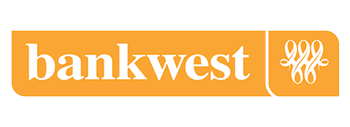
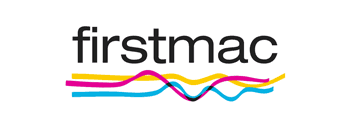


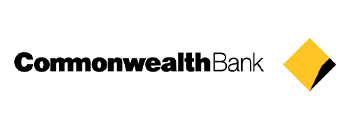
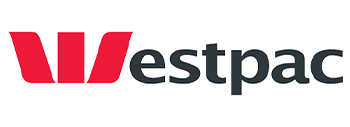



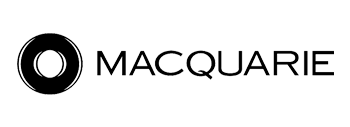
Having encountered thousands of different scenarios, our team is well equipped to find you suitable solutions. Having the right mortgage broker by your side is essential to ensure you are getting the absolute best deal for your unique situation.

We understand everyone’s circumstances are different and we take the time to understand you and your goals. We value forming lifelong relationships with all our clients and we are fully committed to adding value every step of the way.
We know that mortgages can sometimes be complex and hard to understand. We focus on simplifying the process for you and we treat your loan as if it were our very own. Let us do what we do best so there’s one less thing for you to worry about.
Using a mortgage broker like Zenith can help simplify the whole home loan process for you. We offer expert advice on loan products tailored to your unique situation. We save you time by doing the legwork, comparing options, handling paperwork, while also negotiating better terms and identifying potential hidden fees. Since we are not tied to any one lender, we can select the best loan suited to your needs, ensuring you get the most appropriate deal. Additionally, we proactively review your interest rate multiple times per year, ensuring you are on the most competitive rate possible.
There are no fees for our services. We get renumerated by the lender of your choice after your loan settles.
Different lenders have different lending criteria and requirements that you must meet before they lend you money. We take time to analyse your credit file, income situation, strengths and weaknesses of your financial situation, and much more, to find you the most suitable lender and loan package.
As a first step, we will need to understand your goals and objectives, and then collect and review all supporting documents. Once we have enough details to make a recommendation, it will then be up to the chosen lender’s turnaround time. This could be weeks to months, which is why we always recommend getting the process started as soon as possible, especially for property purchases.
Sometimes you may not qualify to get finance from a particular bank. Once we have assessed your situation, we will be able to find you the lowest rate possible from eligible lenders. Interest rates are only part of the equation, we’ll help you take into account all other fees and features so you can make an informed decision.
Most lenders require that you have minimum of 5% deposit of the property’s purchase price before taking out a home loan. However, in certain situations, this deposit can be lower. The maximum amount is up to you. Remember that you may have to pay Lender Mortgage Insurance (LMI) if your deposit is less than 20% of the property’s price, unless you qualify for an LMI waiver. Contact us to explore your options.
Support for Investment Property Buyers